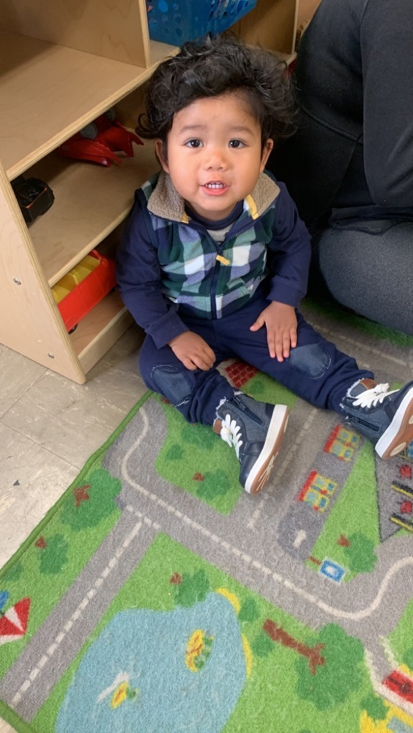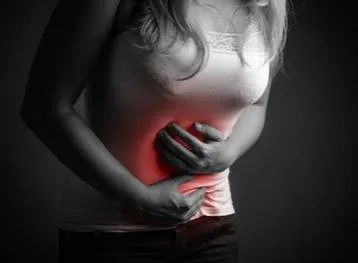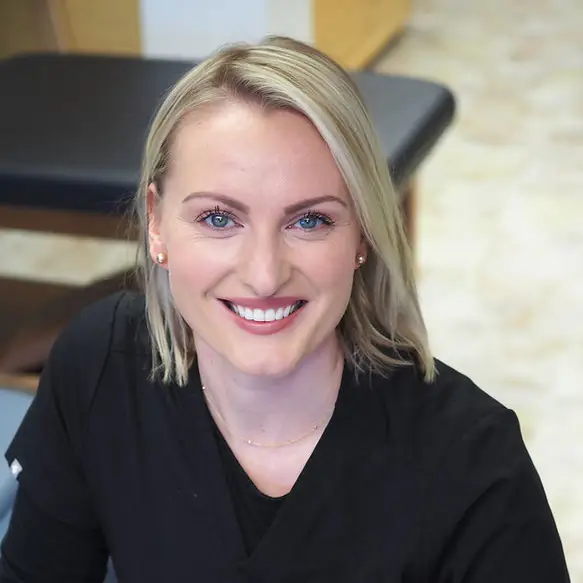I was 16 years old, in constant pain, sitting at the gynecologist’s office with my mother (as if that is not uncomfortable enough). I ended up getting a prescription for birth control with barely any education about it (cue even more awkwardness since my mom had to approve it). I was not put on birth control for being sexually active, but because I had uncontrollable pain and heavy bleeding during my period. After reviewing a few symptoms and noticing large cysts on my ovaries through an ultrasound, my doctor said, “I think you have Endometriosis.” To me, that was the term to label my period pain and heavy bleeding, but 20 years later, I now know that word means so much more.
Within the next few years, I’d have Endometriosis flare ups and would undergo a laparotomy (cut across my belly) to remove ovarian cysts. The cysts would come back and I’d awkwardly joke to friends, “I just grow things.” They’d come back, rupture, cause debilitating pain, I’d end up in the hospital, and the cycle went on. I’m pretty sure one even ruptured while I was riding on the back of a pick up truck on an African mission trip in the middle of the desert.
In my early twenties, my doctor encouraged me to “not wait too long” to have children because of the Endo. I’m sorry, what? I didn’t even know how to balance a checkbook, let alone take care of a child. My pain was managed, for the most part, by birth control (daily pills, pills that gave me a period only a few times a year, and patches – do they still make those?). Sure, I’d still have extreme pain, never know when I was getting my period, then have 10 day periods or bleed every 2 weeks, but I thought this happened to a lot of women, so it was probably “normal”, right? We are told that periods are painful and it’s just something we need to deal with. So we do.
Fast forward to 2017 when I married my husband. We decided I would come off birth control because who knew how long it would take for us to conceive, since I had this weird and obscure thing called “Endometriosis.” A few months and no baby later, my gynecologist recommended I see a reproductive endocrinologist. (I learned that this was a fancy term for “fertility doctor.”) I had no idea what that journey would entail. My husband and I (albeit, naively) went to our first appointment and our doctor said we needed to go straight to IVF (in-vitro fertilization) because of my Endometriosis. Huh? Was it that bad?
Apparently, it was. I had two grapefruit-sized cysts on my ovaries (my husband and I named them “Norman” and “Esther” to get through this crazy time). In the next four years, I’d undergo 1 egg retrieval, 5 IVF cycles, 2 failed transfers, 2 miscarriages, and 1 successful pregnancy and live birth via C-section. Hundreds of timed injections, a ton of testing and hormones, 6 am bloodwork, hours of doctors’ appointments, one 5-day hospital stay because I got sepsis after an HSG test, several endometrial biopsies, induced menopause, 2 D&C’s, lots of tears and prayers, and a pregnancy loss support group later…our miracle child came.
After our son was born, that’s when my endometriosis took a turn for the worse. I was still off birth control and had extreme tailbone/deep rectal pain that felt like I was sitting on a bowling ball or had to poop all the time (“Norman” was back and in full force). I could barely sit for prolonged periods. I would miss events. I had extreme stabbing pain at work that my co-workers and boss had to help me move. I’m pretty sure most of my time was spent in the fetal position with a heating pad strapped to me. At work, I would help my patients while trying not to focus on my own pain. I’m not sure how I’ve remained married this whole time because most days, I was irritable and lethargic. Thank God for my patient and supportive husband.
Over the last year, I had been trying to manage my symptoms conservatively in hopes that we could try IVF again after our son was born (we have 2 embryos left), but I was in the ER every 6 months, at urgent care a handful of times, and was missing work and life events. I had been trying non-surgical interventions like acupuncture, diet/lifestyle changes, OTC and prescription pain meds (living off multiple Tylenol and Advil each day), a new Endometriosis drug that made my hair fall out, heating pads, warm baths, pelvic rehab, and even consulted a pelvic pain specialist who recommended pelvic nerve injections. Then after my last exacerbation that left me in hours of pain at urgent care, my husband and I decided to consult an Endometriosis surgeon. We spoke to a urogynecologist and then an endometriosis excision specialist, the latter of whom we ended moving forward with. I was eventually diagnosed with a “frozen pelvis” (cue “Let it Go” song) and Stage 4 Endometriosis, which is the most severe form and meant I had over 40 deeply implanted, dense adhesions in my reproductive tract and organs, as well as large cysts on both ovaries.
When I got out of surgery that took almost 4 hours, the doctor told my husband that it was more complicated than expected and that I “made him work.” He took out my appendix, my fallopian tubes, and tons of lesions on my bowel, bladder, and rectum. I had to have a catheter in the hospital and ended up staying for several days while I healed from severe abdominal pain, gas pain, and the 5 incisions along my abdomen.
That was only a few months ago and I already feel like a different person. I have more energy now (well, as much energy as you can have raising a toddler), and my bloating, pain and cramps are gone. My urinary and gastrointestinal issues are gone. My hair stopped falling out. I can exercise again. I can sit for more than an hour. I haven’t taken a Tylenol or Advil or used my heating pad. The doctor said we can even start to try to conceive again.
My heart goes out to women who are struggling with pain and awaiting a diagnosis. Statistics indicate that it can take 4-11 years for women to get properly diagnosed. Endo warriors are sometimes disregarded as “chronic pain” patients or “crazy” or they’re just not believed by their doctors. Or maybe their doctors don’t know what to do. I’m pretty sure I have phantom pain sometimes because the pain I’ve been living with for so long is not actually there anymore. I’m honestly not sure who the “real” me is – without the crazy hormones or fatigue or pain. This is the first time in 29 years that I have not had pain during my periods and I get emotional thinking about it. It’s a weird concept to think I’ve been living this way for this long and finally, at 37 years old, I’m living in this new pain-free way that I almost have to get used to. And who knows – maybe life actually starts now.




